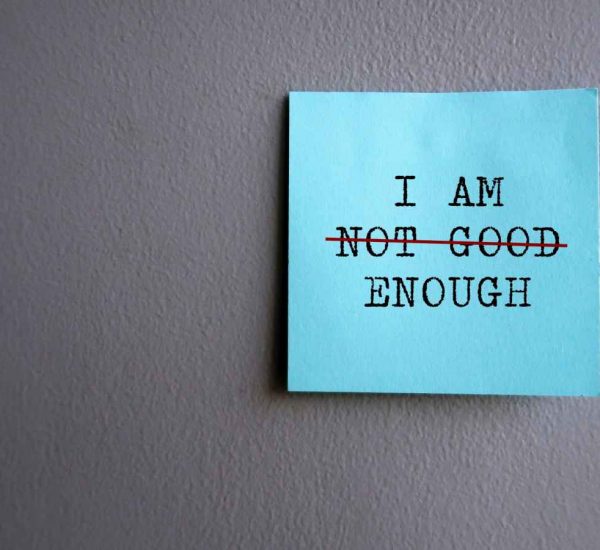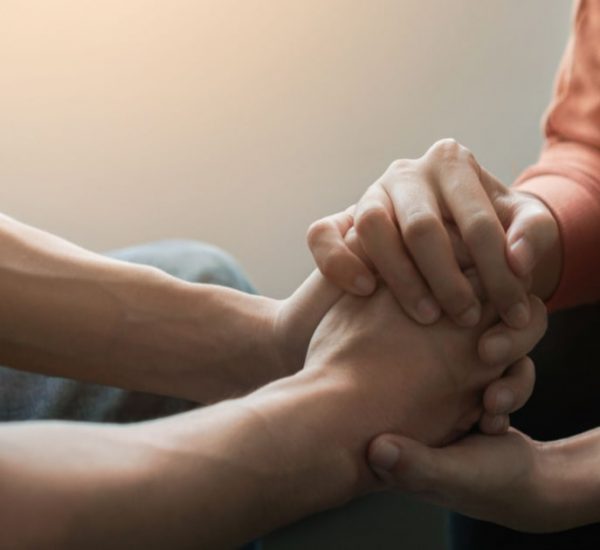Are you dealing with someone going through depression? Do you want to help them get out of their situation?
Do you want them to be the same as they used to be? But, how to+ deal with a depressed person?
Well, if you have a friend or know someone who’s currently going through a difficult phase in life, then you are not alone in this. Nearly 5% of individuals around the world suffer from depression according to WHO fact sheet 2021. Depression is a serious mental disorder that can affect anyone at any point in their life. It does not differ between teens and adults. Anyone going through a rough patch in life is susceptible to depression at any age.
Not only does this mental illness disrupts the life of the person suffering from it but it also impacts everyone around that individual, causing immense pain and hurt to everyone. However, one thing is certain depression is treatable, but the recovery only depends on the depressed individual. All you can do is support and encourage them which is certainly crucial for your loved one to fight their depression.
So, today we are here to help you in dealing with a depressed friend. But, before lending a helping hand you should be aware of when to be of help. The hidden symptoms and uncommon signs of depression alike. While you should know how to be of help to a depressed friend, you should also be aware of what not to do or say when you are around a depressed loved one. Throughout this journey, you’ll need a lot of emotional strength too. So, without further ado let’s dive deep and know everything about depression and helping a depressed friend.
Knowing the basics of depression
Firstly, depression is a serious mental disorder that you should never underestimate or joke about. It drastically alters the way you think, feels, and act in your everyday life. A depressed individual requires a lot of effort to pull through things they once enjoyed. Your friend or a loved one dealing with depression simply cannot just get rid of these emotions one fine day. So, you need to understand the seriousness of the situation first before dealing with it.
Secondly, while depression causes feelings of sadness and/or lack of interest in activities that a person once enjoyed, yet it is different from grief. According to American Psychiatric Association, grief is a normal part of life. It sets in when you are going through a major setback.
However, depression is not the same as grief. Grief comes with the death of a loved one, a sudden financial setback, or a major disaster in life. In brief, a person experiences painful feelings intermixed with positive memories of happy times. A grieving individual may have suicidal thoughts fantasizing about uniting with their loved one. Also, during grief a person’s self-esteem is intact.
However, depression is completely different from grief. According to Harvard Medical School Research, ‘depression results from a chemical imbalance in the brain’. This chemical imbalance happens due to several different reasons such as stressful life events, genetic vulnerability, medications, and medical problems like thyroid problems, vitamin deficiency, or brain tumors. It is accompanied by feelings of worthlessness and self-hate.
A depressed individual is also prone to having suicidal thoughts with the idea of freeing themselves from the pain of this life. Therefore, depression and grief are entirely different things.
What you need to understand while offering help to a depressed friend
- Your loved one can’t snap out of depression all alone.
- Covering the problem won’t solve it rather it would make their situation worse
- A depressed individual goes through a plethora of exhausting emotions which can make them lash out in anger on you, but you should never take it personally.
- Depression severely drains the energy out of the victim so, you should never pressurize them to try harder. Rather, be patient and supportive during their battle.
- No matter how supportive you are, you can never change their situation. At the end of the day, it all lies in the hands of the person dealing with depression.
Recognizing the signs of depression in a loved one
As friends and family are the first ones who interact with a depressed individual, you should understand the signs of it to be of help timely. You should be concerned if your loved one exhibits the following traits for at least two weeks;
- Constant feelings of sadness, a depressed mood, or being easily tearful
- Lack of interest in activities they once enjoyed
- Careless attitude about personal hygiene like bathing or combing hair
- Uninterested in meeting friends and family or having trouble connecting emotionally with loved ones
- Sudden changes in sleep pattern i.e. sleeping less or more than usual
- Eating less or more than usual and gaining or losing weight recently
- Frequently complains of aches and pains like a headache, stomach aches, etc. Or, complains of being tired all the time.
- Easily exhausted after doing simple chores or too drained of energy to even complete those tasks.
- Gets easily irritated, frustrated or angry
- Feelings of helplessness, guilt, and self-loathing attitude. Has recently been very pessimistic about life.
- Increase in purposeless activities like pacing, handwringing, and unable to sit or stand still.
- Frequent incidences of substance abuse
- Brings up death, suicide, or talks about hurting oneself
5 ways to help and deal with a depressed person
While dealing with a depressed person it is important to know what they are going through and understand their situation. A depressed person often feels that they are not understood by others. Therefore, you should never make them feel that way rather let them know that you are there for them no matter what. The following things should be kept in mind when dealing with a depressed friend;
1- Listen to them
The first and most difficult thing when dealing with a depressed person is not knowing what to say and how to start a conversation. You might be aware of your friends’ situation but your inability to respond to their situation is often the first stumbling block. To break the ice you need to know some conversation starters like;
‘ I was a bit concerned about you lately because you seem down.’
‘ Are you doing well? As you are not being you lately.’
‘You seem disturbed, is anything bothering you that you want to talk about?’
Remember that depressed person tends to isolate themselves. It is difficult for them to open up and explain their feelings because they feel no one would understand them. So, you might have to express your concern and encourage them to open up first.
Once your depressed loved one decides to open up then begins the real test of your patience and willingness to help. You need to listen to their feelings and respond in a manner that validates their condition. Use active listening techniques i.e.;
a- Asking questions like ‘ since when have you been feeling this way?’
b- Using body language to encourage speaking like nodding, saying ‘then, hmm’
c- Validating their feelings by saying something like,’ This must be terrible to cope with.’ Or ‘It might be exhausting for you.’
You have to be patient with your friend and try not to force them to open up. Let them share their situation with you when they feel comfortable. To make this conversation most effective reach out to your friend in person. Have a face-to-face conversation or video chat if you live miles apart.
2- Understand their situation and take it seriously
The next step in dealing with a depressed person is understanding their situation. A depressed person often doesn’t open up because of the feelings of being misunderstood. So, if at all someone in depression decides to share their feelings with you then you should never assume or jump to conclusions.
Try understanding their situation by stepping into their shoes, but never give advice. Take their condition seriously because depression is a very serious mental disorder. Never try to fix the person or compare them with someone else.
Or, never assume that seeking help or taking medications would make them feel better all at once. Two individuals going through depression for the same reasons might not be prescribed the same treatment or medication.
So, all you can do to make them feel validated is by saying something like;
‘You are not alone in this.’
‘I may not be able to understand your feelings, but I know it must be overwhelming for you.’
‘You are important to me so please tell me how can I be of help?’
‘ Whenever you feel that you can’t handle it alone anymore, then know that I am just a call away.’
Remember that sometimes just sitting beside someone, listening, and understanding someone’s feelings can make them feel a lot better.
3- Encourage them to seek help
After you have understood the situation of your loved one, you should encourage them to seek help. While you cannot fix their depression, what you can do is support and encourage them to recover.
Now, bear in mind that your depressed friend or a loved one might not agree to it initially. As depression involves negative thinking patterns, therefore consulting a professional might also seem worthless to the depressed person. Thereby, encouraging your loved ones to seek help and convincing them that all is not lost is a crucial step in dealing with a depressed person.
Start by suggesting them a general checkup with a physician. If your friend seems reluctant or is too tired to go through the process of booking an appointment then you may intervene to help. When a medical practitioner directs them to see a psychiatrist they will take their suggestion more seriously and consider making an appointment.
You might also help with finding an appropriate psychiatrist for your friend. As depression saps out the energy of a person so even a small task like making calls and finalizing an appropriate mental health professional might seem difficult to them. Offering help in such a situation would take them one step closer to getting better.
You might also want to accompany them on their first visit. As depression makes a person feel lonely and sad therefore having someone by their side while seeking help can be of great help.
Related; 9 Ways to Be a Good Friend
4- Support their treatment and keep them in the loop
Once your friend agrees to see a health professional, then begins the long journey of recovery which is not easy at all. During this hard phase of their life, your unconditional love and support can mean the world to your depressed friend. Now, besides form helping them show up to their appointments you can also be of help in other areas of their lives and make their life a bit easier.
You can offer them help with daily household chores because doing something as simple as washing dishes might seem difficult to a depressed person. If you notice that your friend is not eating properly then you may offer to cook them a meal or surprise them by sending some home-cooked food their way. If you are running errands then ask them if they need anything.
Not only this, but you should also encourage them to indulge in healthier and uplifting activities. Watch a movie with them together or go on hiking. Spending some time in nature can boost the mood of someone dealing with depression.
You never know how your few words of kindness can uplift someone’s spirits and encourage them to live again. So, you should always try to be kind and polite to someone who is already battling to live.
5- Be patient with them
While you decide to be of help to someone dealing with depression, you should also know that it will not always be easy. As depression results in pessimism and feelings of hopelessness so it will be hard for them to see any good in life despite your support and love.
Also, depression comes with a trail of irritability, mood swings, sadness, and anger spans. If you are always around your friend then you often have to bear with their rage and backlash. But, you should not take anything they say personally because it is the depression talking, not your friend.
Moreover, you should not assume that seeing a therapist for a couple of weeks will magically cure their depression. Depression does not have a defined recovery timeline.
It is often a process of trial and error in which the therapist will have to try several options before finding a perfect solution that best helps your friend’s symptoms. Additionally, even if the treatment goes successful it does not mean that their depression will go away entirely. So, you have to be patient when dealing with a depressed person because being impatient will help neither of you.
Related; 10 Ways to remain Calm In Stressful Situations
6- Take care of yourself
While you are on your journey of helping a person deal with depression make sure that you don’t neglect yourself too. You can only be of help to someone if you are mentally and physically strong yourself. Before extending your help to a depressed loved one you should be sure that your energy is sufficient enough.
You need to take good care of yourself along with dealing with a depressed person. If your depressed friend isn’t willing to go then hang out with your other friends or loved ones. Make plans with them and have fun to not get overwhelmed by the condition of your depressed loved one.
Don’t let your professional life suffer either. Remember that depression takes time to heal. There is no quick fix to it and it might even take years before your depressed friend comes back to being their usual self.
So, you should keep up with your life while being of help to your friend as ignoring yourself, your life, and devoting all your energy to the recovery of your loved one will do you no good.
Learn to set boundaries around your time. Speak up for yourself when your depressed friend hurts your feelings, but with sensitivity. Stay focused on your life. This way you’ll have enough energy and patience to deal with a depressed friend.
Things to avoid when dealing with a depressed individual
While there are things that you should do, there are also certain don’ts that you should be aware of while dealing with someone battling depression. You should;
1- Never belittle their condition
Depression is a very serious illness, so you should never take it as a joke. If you have never been through it then you don’t know how it feels. Therefore, you should never assume what a depressed person might be going through nor should you say something like, ‘I know how it feels or ‘We all have bad days.
Depression is certainly not a bad day rather it is a constant feeling of hopelessness and nothingness. So, if you don’t know about it simply say it instead of generalizing their condition or pretending that you understand.
Related; 5 effective ways to be non-judgmental in practice
2- Don’t try to be an expert
One thing a depressed person hates the most is unsolicited advice from people who barely know about depression. Saying things like a good diet and exercise will make you feel better,’ will only exacerbate their feeling that no one understands them. Instead of behaving like a mental health professional behave like a friend and just be there for them when they need you the most.
3- Don’t take things personally
Always bear in mind that depression takes a heavy toll on the mental health of the person. It affects their lifestyle drastically so much that the depressed person is not even able to connect with their loved ones emotionally. Their constant moodiness and irritability cause them to lash out in anger at their close friends and family.
During this phase, you need to remember that it is not your friend talking instead it is the depression. So, you should not take what they say personally.
Related; 8 Ways to Stop Taking Everything Personally
4- Never try to fix them
Depression has no quick fix or magical pill for a cure. It takes months and even years for a depressed person to come back to their normal life. No matter how much you want them to recover they can’t unless they want to.
You can never fix someone’s problem, but you can always control how you behave. So, don’t stress yourself out thinking it’s your fault and you have to fix it. Rather, be patient, support them, and hope that things will turn out better.
The threat of suicide
Depression comes with a very real threat of suicide. So, you should be very vigilant when things are turning darker. It’s important to recognize the signs of suicide and intervene timely. You have to be very vigilant if your friend or loved one;
- Talks about harming themselves or frequently bring up death while talking.
- Is very hopeless and feels worthless
- Exhibits self-hate
- Starts getting things in order
- Lashes out in anger and often acts in self-destructive ways
- Spends more time alone than usual
- Buys pills or weapons and makes excuses when you want to know the reason
- Thinks that they are trapped and death is a way to free oneself
Conclusion;
Depression is a difficult thing to deal with. Not only for the person suffering but also for the people close to that individual as well. It can be really hard and scary for you to imagine someone you love going through depression and having suicidal thoughts. But, while you cannot fix their problem you can always be of help by being there for them.
Act on these 6 ways to deal with a depressed person and keep in mind the 5 don’ts as well. Support them and encourage them while taking care of yourself too. In an end, remember that it’s going to be a long journey so, you should never lose your calm around your depressed friend or loved one.




